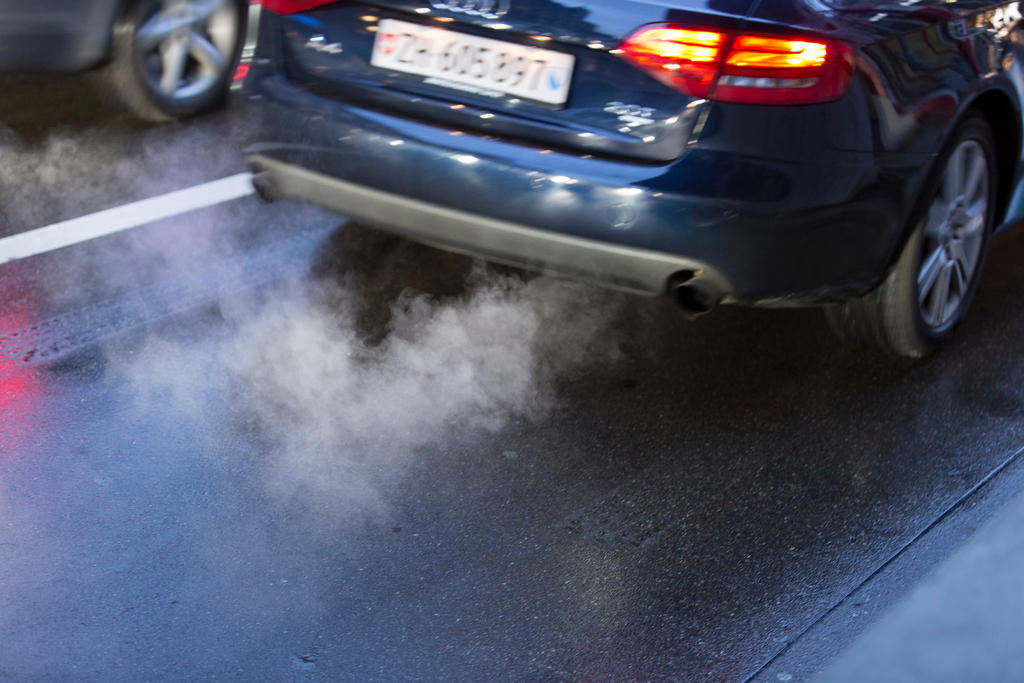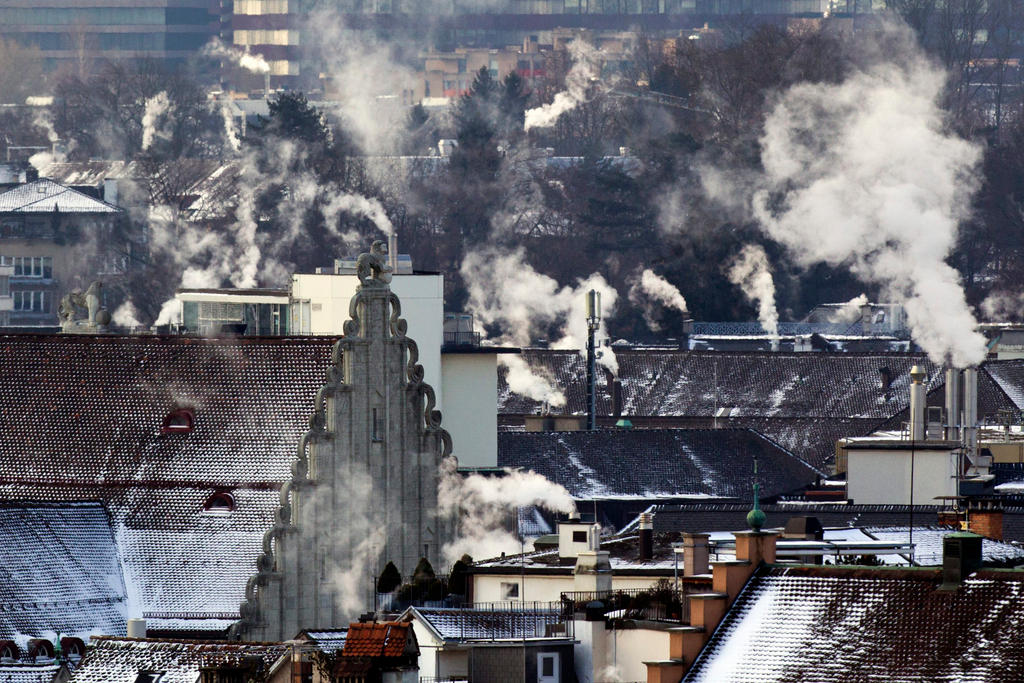
New cars produce more CO2

Newly registered cars in Switzerland emitted more CO2 in 2018 than the previous year, due notably to a boom in sales of four-wheel drive vehicles.
Since 1996, average CO2 emissions from fuel had been falling, thanks to more use of biofuels. But this trend was reversed in 2017, according to a survey by the Tages-AnzeigerExternal link newspaper published on Tuesday. For the first time since statistics began in 1996, CO2 emissions from vehicles rose by 0.4% in 2017 and 3% in 2018, it found.
The increase can be explained partly by a fall in sales of diesel vehicles after the diesel emissions scandal that started in 2014. These vehicles emit more nitrogen oxide, but up to 15% less CO2 than petrol vehicles.
However, the increase is attributed mainly to a boom in sales of four-wheel drive vehicles, which consume on average 10% more fuel than the same vehicle with two-wheel drive. But 49% of new vehicles sold in Switzerland in 2018 had four-wheel drive.
Whatever the reason, this reversal of the trend goes against government climate targets set in 2015.
“If we do not reach the targets it’s because of lack of will in the sectors concerned but also lack of political will,” Social Democrat parliamentarian Jacques-André Maire told Swiss broadcaster RTS, calling on the government to take stronger action.

More
Swiss climate policy: praised abroad, attacked at home

In compliance with the JTI standards
More: SWI swissinfo.ch certified by the Journalism Trust Initiative






























You can find an overview of ongoing debates with our journalists here . Please join us!
If you want to start a conversation about a topic raised in this article or want to report factual errors, email us at english@swissinfo.ch.